Walther PDP 4.5″ Full Size Optic Ready 9mm Pistol, Black – 2842475 For Sale
$599.99
The Walther PDP 4.5″ Full Size Optic Ready 9mm Pistol, model 2842475, is a testament to Walther’s century-long engineering prowess, offering significant advancements in firearm technology. This Performance Duty Pistol is specifically designed to enhance the shooting experience, featuring Red Dot Ergonomics for optimal use with red-dot optics, which improves target acquisition and accuracy. Its Superterran Slide Serrations provide smooth operation and performance, while the new Performance Duty Trigger ensures precision and consistency, appealing to both seasoned shooters and enthusiasts. The advanced Stepped Chamber design facilitates higher velocity, and its Performance Duty Modularity Grip Texture allows for a secure, comfortable hold with customization options. This pistol’s Red Dot Ready capability is set to transform shooting experiences, solidifying the Walther PDP as a leading choice for reliability and performance, whether on the range or in the field.
Is Walther PDP better than Glock?
The question of whether the Walther PDP is better than a Glock firearm largely depends on individual preferences and specific use cases. Here are some factors to consider when comparing the two:
1. **Ergonomics**: The Walther PDP is often praised for its ergonomic design and comfortable grip. Personal preference will dictate which feels better in hand.
2. **Trigger**: Both Walther and Glock are known for offering reliable triggers, but some users prefer the trigger feel of one over the other. The PDP is noted for its smooth trigger pull.
3. **Capacity**: Both pistols offer similar magazine capacities, though this may vary by specific model.
4. **Aftermarket Support**: Glock generally has more extensive aftermarket support, including a wider range of accessories and customizations.
5. **Reliability and Durability**: Both brands are recognized for producing reliable and durable firearms. User experiences and anecdotal evidence suggest both perform well in this regard.
6. **Price**: Pricing can vary depending on the model and location, but generally, both brands offer competitive pricing.
7. **Purpose**: Consider what you’re using the firearm for—self-defense, competition, law enforcement, etc.—as this can greatly influence which is more suitable.
Ultimately, the decision will come down to personal preference and specific needs. If possible, try handling and testing both models to see which one feels better to you.
Is Walther as good as Glock?
The comparison between Walther and Glock largely depends on the context in which you’re evaluating them, such as reliability, ergonomics, price, intended use, and personal preference. Both brands are reputable and offer high-quality firearms, but they cater to potentially different needs.
1. **Reliability**: Both Walther and Glock have models renowned for reliability. Glock is particularly praised for its durability and consistent performance under various conditions.
2. **Ergonomics**: Walther is often noted for its ergonomic designs, which some users find more comfortable than Glock. The grip and handling can vary, so personal preference plays a significant role.
3. **Price**: Pricing can vary significantly between specific models. Generally, both brands offer competitive pricing for their quality, but this may differ based on the model and features.
4. **Intended Use**: The choice might depend on whether the firearm is for self-defense, law enforcement, sport shooting, or another specific purpose. Both brands have models tailored to various uses.
5. **Personal Preference**: Ultimately, the best choice can come down to personal preference, influenced by factors like grip, weight, and overall feel. Testing both brands might be the best way to determine which suits you better.
Both Walther and Glock have strong followings and offer various models that excel in different aspects, so it is advisable to consider specific features and try both brands if possible.
Why are Walthers so expensive?
Walther firearms tend to be expensive due to several factors:
1. **Quality and Craftsmanship**: Walthers are known for their high-quality construction and precision engineering. The materials used, such as high-grade steel and polymers, contribute to durability and reliability.
2. **Reputation and Brand Legacy**: Walther has a long history and strong reputation in the firearms industry, being well-regarded for products like the Walther PPK and PPQ. This legacy often leads to a premium pricing strategy.
3. **Innovation and Features**: Walther firearms often include advanced features and innovations, such as ergonomic designs, superior triggers, and enhanced safety mechanisms, which can add to production costs.
4. **Precision and Performance**: Many Walther models are designed for high performance, offering accuracy and consistency, which can appeal to both recreational shooters and professionals, justifying higher prices.
5. **Import and Distribution Costs**: As a German company, Walthers sold abroad may incur additional costs related to import duties, shipping, and distribution, all of which can influence the retail price.
6. **Limited Production Numbers**: Some Walther models may be produced in smaller quantities, adding exclusivity and driving up costs due to limited availability.
7. **Regulatory Compliance**: Ensuring that firearms meet various international safety standards and regulations can add to manufacturing expenses.
These factors combined contribute to the overall higher pricing of Walther firearms compared to some other brands.
What Walther did James Bond use?
James Bond is famously known for using the Walther PPK, a compact semi-automatic pistol. This firearm has become synonymous with the character throughout the James Bond film series.
What pistol do Navy SEALs prefer?
Navy SEALs typically prefer the SIG Sauer P226 as their standard-issue pistol. This choice is due to its reliability, durability, and performance in various combat conditions.
What Walther does John Wick use?
John Wick uses a Walther PPQ handgun in “John Wick: Chapter 2.”
Does the Walther PDP take Glock mags?
No, the Walther PDP does not take Glock magazines. While both firearms might have some similarities, they use different magazine designs that are not interchangeable.
What gun brand is better than Glock?
Determining what gun brand may be considered “better” than Glock largely depends on personal preferences, intended use, and specific criteria such as reliability, ergonomics, price, or aesthetic. Here are a few brands often compared with Glock:
1. **Sig Sauer**: Known for their quality and reliability, especially models like the P320.
2. **Smith & Wesson**: The M&P series is often compared to Glock for its ergonomics and usability.
3. **Heckler & Koch (HK)**: Known for their engineering and build quality, with models like the VP9 and USP.
4. **Beretta**: Offers a range of firearms with a focus on design and performance.
5. **CZ**: Models like the CZ 75 and the P-10 series are praised for their ergonomics and accuracy.
Ultimately, the best brand will vary based on individual needs and preferences.
Is Walther high quality?
Walther is generally considered a high-quality manufacturer, particularly known for its firearms. The company has a strong reputation for producing reliable and well-crafted pistols and rifles, such as the Walther PPK and PPQ models. These firearms are used by military, law enforcement, and civilian markets worldwide. Quality perception can vary depending on specific models and personal preferences, but overall, Walther is regarded as a reputable name in the firearms industry.
Are Walthers still made in Germany?
Yes, Walther firearms are still manufactured in Germany. The company, Carl Walther GmbH, continues to produce firearms at its facility in Ulm, Germany.
Why was Walther PPK banned?
The Walther PPK, a well-known firearm, has been restricted or banned in certain regions due to compliance with specific legal and safety regulations rather than an outright, universal ban. For instance, the Walther PPK was banned in the United States under the 1968 Gun Control Act, which restricted the importation of small firearms that did not meet specific size and weight criteria laid out for non-sporting purposes. This act was meant to curb the importation of easily concealable firearms. However, it’s important to note that the PPK/S was introduced specifically to meet these legal requirements, allowing for continued sales in the U.S. market. Local laws regarding firearms can vary widely, so any restrictions or bans are heavily dependent on specific regional legislation.
Do Walthers have safeties?
Yes, many Walther pistols come with safety features, though the specifics can vary depending on the model. For example, the Walther PPK and Walther PPQ have different types of safeties, like manual safeties or trigger safeties. It’s always important to check the specifications for the particular Walther model you are interested in to understand its safety features.
What pistol does John Wick use?
John Wick primarily uses a Heckler & Koch P30L pistol in the first film of the series.
Is 32 ACP good for self-defense?
The suitability of .32 ACP (Automatic Colt Pistol) for self-defense can depend on several factors, including personal preferences and specific circumstances. Here are some points to consider:
1. **Stopping Power**: .32 ACP generally has less stopping power compared to larger calibers like 9mm or .45 ACP. This could potentially make it less effective at quickly incapacitating an assailant.
2. **Recoil and Control**: The .32 ACP typically has low recoil, making it easier to handle and allowing for quicker follow-up shots, which can be advantageous for some shooters, especially those who are sensitive to recoil.
3. **Compact and Lightweight Firearms**: Many .32 ACP handguns are small and lightweight, making them easy to carry and conceal. This can be beneficial for those who prioritize portability and comfort in a concealed carry weapon.
4. **Penetration and Capacity**: While .32 ACP may offer less penetration compared to some larger calibers, it still provides adequate penetration for many self-defense situations. Additionally, firearms chambered in .32 ACP often have relatively high magazine capacities.
5. **Ammunition Availability**: Availability of .32 ACP ammunition can vary by location and may be more limited compared to more popular calibers like 9mm.
Ultimately, whether .32 ACP is suitable for self-defense depends on individual needs and comfort levels. It’s important for anyone considering a firearm for self-defense to perform extensive research, test various calibers and firearms, and consider professional training in firearm safety and self-defense tactics.
What military uses Walther?
Walther firearms, particularly their pistols, are used by various military forces around the world. Notably, the Walther P99 and its variants have been employed by police and military units across different countries, including Germany. The Walther PPK also has a historical connection, famously used by military and law enforcement agencies, and is known as the weapon of choice for the fictional spy James Bond.
| Product Line | PDP |
|---|---|
| Overall Length | 8" |
| Magazines Included | 2 |
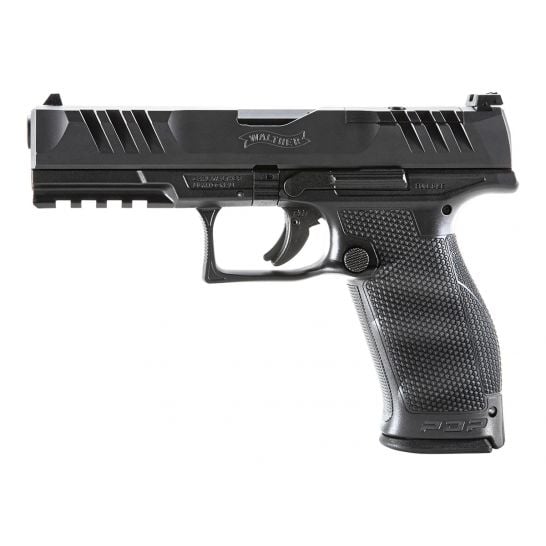
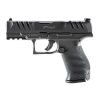
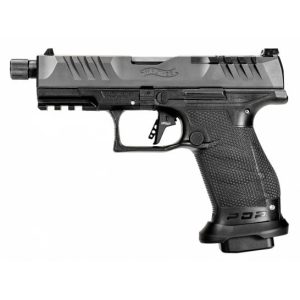
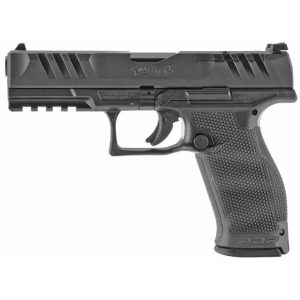
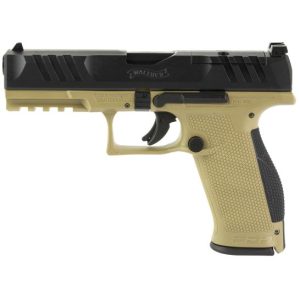
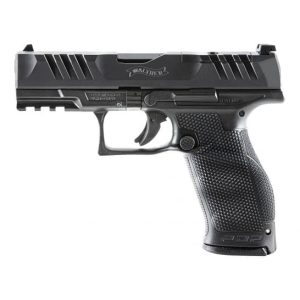
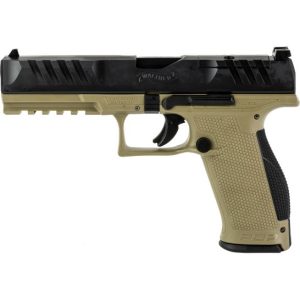
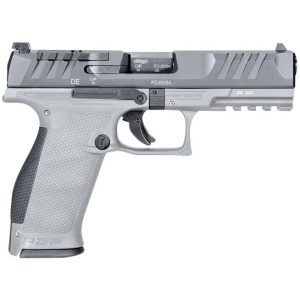
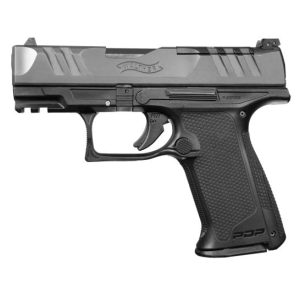
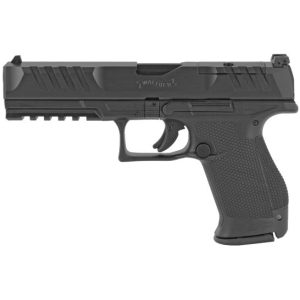
Reviews
There are no reviews yet.